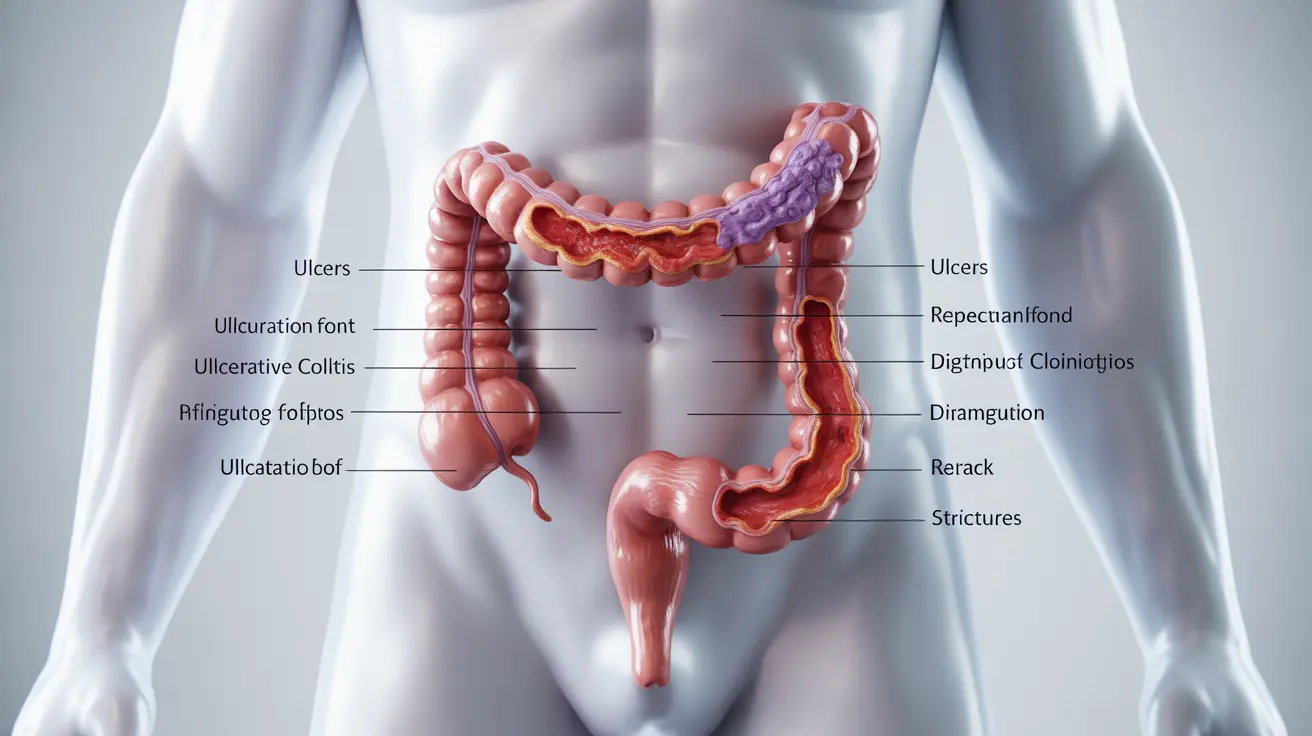Receiving a diagnosis of ulcerative colitis (UC) can be overwhelming, but understanding your condition is the first step toward effective management. This comprehensive guide will walk you through the diagnostic process, symptoms, and treatment options to help you navigate your UC journey with confidence.
As an inflammatory bowel disease (IBD), ulcerative colitis requires careful medical attention and a thorough understanding of its impact on your daily life. Let's explore what you need to know about your UC diagnosis and the path forward.
Key Symptoms and Diagnostic Indicators
Ulcerative colitis presents with distinctive symptoms that help healthcare providers differentiate it from other gastrointestinal conditions. The most common indicators include:
- Bloody diarrhea
- Abdominal pain and cramping
- Urgent bowel movements
- Unexplained weight loss
- Fatigue
- Rectal pain or bleeding
Unlike other digestive conditions, UC inflammation occurs continuously from the rectum upward through the colon, creating a unique pattern that aids in diagnosis.
The Diagnostic Process
Getting an accurate UC diagnosis involves multiple steps and tests to rule out other conditions and confirm the presence of ulcerative colitis. Your healthcare team will typically employ:
Medical History and Physical Examination
Your doctor will conduct a thorough review of your symptoms, family history, and perform a physical examination to assess your overall health and identify any immediate concerns.
Laboratory Tests
Several blood and stool tests are essential for diagnosis:
- Complete blood count (CBC)
- Inflammatory markers (CRP and ESR)
- Stool samples for infection screening
- Calprotectin tests to measure inflammation
Imaging and Endoscopic Procedures
Visual confirmation of UC typically requires:
- Colonoscopy with biopsy
- Flexible sigmoidoscopy
- CT scan or MRI (in some cases)
- Upper endoscopy (if upper GI symptoms are present)
Treatment Approaches and Management
Treatment for ulcerative colitis varies based on disease severity and individual patient factors. Common approaches include:
Medications
- Aminosalicylates for mild cases
- Corticosteroids for acute flares
- Immunomodulators for moderate to severe cases
- Biologics for severe or resistant cases
Lifestyle and Dietary Modifications
While diet alone cannot cure UC, certain modifications can help manage symptoms:
- Identifying trigger foods
- Maintaining proper hydration
- Following a balanced nutrition plan
- Considering specialized diets under medical supervision
Long-term Monitoring and Care
Regular monitoring is crucial for successful UC management. This includes:
- Scheduled follow-up appointments
- Regular colonoscopy screenings
- Blood work to monitor medication effects
- Tracking symptoms and flares
- Cancer surveillance as needed
Frequently Asked Questions
What are the most common symptoms of ulcerative colitis (UC), and how are they different from other gastrointestinal conditions?
The most distinctive symptoms of UC include bloody diarrhea, abdominal pain, and urgent bowel movements. Unlike conditions such as IBS or Crohn's disease, UC specifically affects the colon and rectum with continuous inflammation, rather than scattered patches throughout the digestive tract.
How is ulcerative colitis diagnosed, and what tests are typically used to confirm the condition?
UC diagnosis involves multiple tests, including blood work, stool samples, and endoscopic procedures. The gold standard for diagnosis is a colonoscopy with biopsy, which allows doctors to visualize the inflammation pattern and collect tissue samples for confirmation.
What are the main treatment options for ulcerative colitis, and how do they differ for mild versus severe cases?
Treatment options range from oral medications for mild cases (such as aminosalicylates) to more potent medications like biologics for severe cases. Mild cases may be managed with topical treatments and dietary modifications, while severe cases might require immunosuppressive therapy or surgery.
Can dietary changes or nutritional supplements help manage symptoms of ulcerative colitis, or are they ineffective?
While diet cannot cure UC, dietary modifications can help manage symptoms and prevent flares. Some patients benefit from identifying trigger foods and following an anti-inflammatory diet. Nutritional supplements may be recommended to address deficiencies common in UC patients.
What are the potential long-term risks and complications associated with ulcerative colitis if it is not properly managed?
Poorly managed UC can lead to serious complications including colon cancer, toxic megacolon, severe bleeding, malnutrition, and increased risk of blood clots. Regular monitoring and adherence to treatment plans are essential to prevent these complications.




